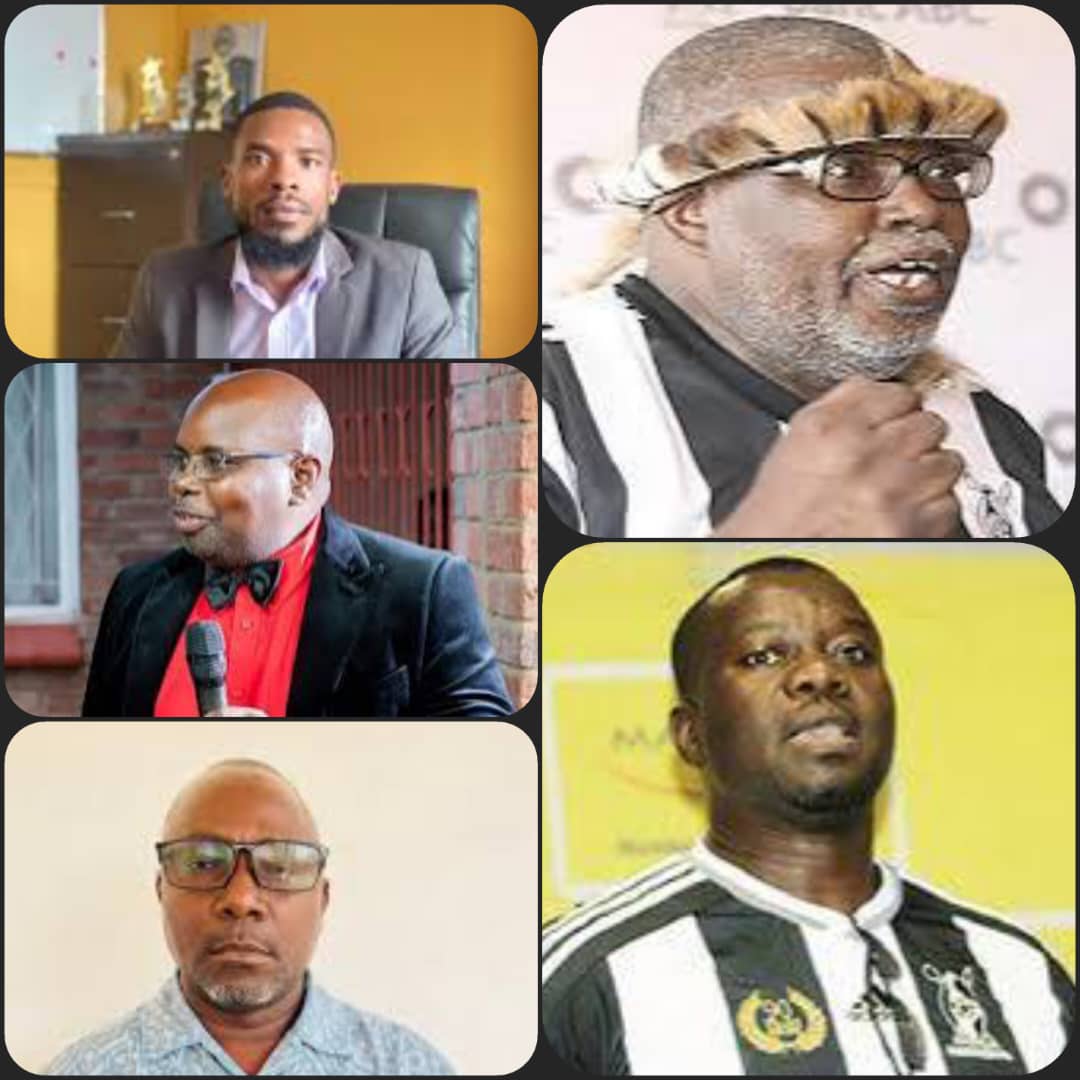Sports Correspondent
The first Highlanders chief executive officer was the late former club chairman and later, president, Ndumiso Gumede.
His two-year contract expired at the end of 2017, after which secretary Emmett Ndlovu, who acted in the veteran administrator’s position after he was suspended by the Philip Chiyangwa-led Zifa in 2016, continued in that post.
In May 2017, former club secretary Nhlanhla Dube was appointed CEO with his tenure set to end in 2019 but two club executive members vice-chairman Modern Ngwenya and secretary Israel Moyo and later treasurer were suspended for refusing to renew his contract.
Dube unceremoniosly left the club at the end of 2021, spending the last few months on ‘forced leave’ ostensibly because he had accumulated a lot of leave days and was replaced by former communications officer, Ronald Moyo in an acting capacity.
Moyo, eventually substantiated as CEO in March 2022, saw off his contract in March last year, and not without controversy as he was viewed as the blue-eyed boy of the former chairman Johnfat Sibanda and the incoming executive would not have him.
He was replaced by the late Sihlangu Dlodlo in April last year.
Dlodlo was appointed out of 24 applicants, who were interested in that job but the marketing expert was found dead at his house in mysterious circumstances last October and Brian Moyo, appointed a month later, was this April suspended amid allegations of financial impropriety and he later resigned.
Executive committee member Kindman Ndlovu is acting CEO and the club has started another search for a new CEO.
The turnover has been unprecedented.
The club requires the new CEO to have a relevant Bachelor’s or Masters’ degree, an in-depth training and understanding of sport, with a bias to football, experience in a similar or related Executive Football/sport management field, a strong institutional understanding, thorough understanding of modern football leadership trends, including but not limited to FIFA Club Licensing models and strong ability to network and relate with business and football bodies like PSL, ZIFA, current and potential sponsors.
Bosso prefer a bona-fide club member for the post.
Is Highlanders not limiting itself to a narrow crop of candidates in that regard?
In March this year, Leslie Arnold Reed, based in England, founder and CEO of Reed Consulting Elite Sports Advisory and has been the football strategy advisor at Wrexham wrote a piece entitled: “Want to be a CEO in Football” in which he says: “The CEO is in the main tasked with ‘running the club.
Most CEO’s come from a Finance, Commercial or Legal background. Very few come from a football background. Most football CEO’s like football and are attracted to the industry as fans or by the profile and status of the game. Nothing wrong with that. What does an accountant, lawyer, marketeer or sales executive bring to the role of football club CEO ? Its straightforward; Financial, regulatory, sales and marketing expertise. They can also bring leadership qualities, organisational capability, management skills, corporate experience along with business and financial discipline.”
He then says successful CEOs do not necessarily have to possess all the above skills.
“There will be many executives with these assets and experiences along with the personality to make a success of the role of CEO at a football club and many do. Successful CEO’s in any industry will not possess all of the skills and experience required to carry out every role function in a business, rather they will possess the skills and capability to lead and motivate those that do. They may also possess the humility to understand that they need to be a colleague and co-worker to someone of equal importance to the success of that business.
The key to understanding this role in a football club is understanding that a football club is made up of two entities.
Which are: “Firstly It is a fully functioning commercial business. It sells a product, it has customers and it is a well known brand. It has a balance sheet, a P&L sheet, revenues and costs tangible assets, properties and as a business it has an asset value. It also has shareholders and stakeholders and will have sponsors and partners,” says Reed, who has held positions of vice-chairman and head of football development at Southampton.
He adds: “Secondly it is a participant in a sporting competition where outcomes are unpredictable and influenced by random chance (luck) and the skills of its athletes as well as decision making by external influencers. It is elite, high performance sport where success is determined by technique, tactics, physical robustness and mental resilience under great pressure. It is a specialised results driven activity, a game of high emotion embedded in a unique culture.”
Reed, a former player, Charlton Athletic manager and FA technical director, says the club is the hub of the community and business thrive or decline through: “… the performances of the team. Whilst we can comfortably place the business entity in the hands of an experienced CEO it takes a special CEO to lead a football club.
“It doesn’t require extensive technical/tactical football understanding, player recruitment, contract negotiation, team selection or player management skills.
“It does require an understanding of where to be involved and where not to be involved.”


